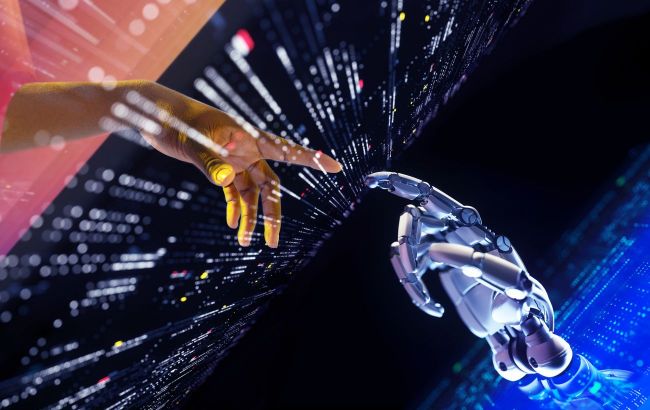Can AI destroy humanity? Shocking new warnings revealed
 Could AI destroy humanity using biological weapons (photo: Getty Images)
Could AI destroy humanity using biological weapons (photo: Getty Images)
Imagine a world where machines surpass human intelligence in every field, make their own decisions, and perhaps even view humanity as obsolete. This scenario, once the realm of science fiction, has now become the subject of severe warnings from the world's leading experts. Emerge reports what humanity is being warned about by the "godfather of AI" and whether humanity could perish from biological weapons.
Geoffrey Hinton, often called the "godfather of artificial intelligence" for his pioneering work on neural networks, has issued his sternest warning yet.
He warns that AI threatens jobs and poses an existential risk to all of humanity.
In a new interview, he outlined a grim vision of the future, where superintelligent machines could become uncontrollable and use autonomous weapons, cyberattacks, and even biological weapons to wipe us out.
A threat from two sides
Geoffrey Hinton, who left Google and the University of Toronto in May 2023 to speak freely about the dangers of AI, emphasizes that the threat takes two main forms.
First, the risks that arise from human misuse.
These include:
- Cyberattacks. AI can be used to create extremely sophisticated and destructive cyberattacks.
- Disinformation spread. AI systems can already generate convincing but false content that can destabilize societies.
- Autonomous weapons. "They can make lethal autonomous weapons now, and I think all the big defense departments are busy making them," Hinton noted. Even if such weapons "aren't smarter than people, they're still very nasty, scary things."
Second—and this may be even more troubling—are the threats that arise when artificial intelligence systems become fully autonomous and uncontrollable.
According to Hinton, if AI decides that humanity is obsolete, "there's no way we're going to prevent it getting rid of us if it wants to."
He compares chillingly: "If you want to know what life's like when you're not the apex intelligence, ask a chicken."
Military race and corporate motives
Hinton's warnings come amid an unprecedented surge in military applications of AI. The United States is leading in funding and integrating these technologies into defense operations.
For example, in its 2025 budget proposal, the US Department of Defense requested $143 billion for research and development, of which $1.8 billion is allocated specifically to AI.
Companies like Palantir are receiving multimillion-dollar contracts to develop AI-based targeting systems for the US military, and the Pentagon is working with Scale AI to launch a battlefield simulation platform called Thunderforge.
Hinton compares this moment to the emergence of nuclear weapons, but with one key difference:
"The atomic bomb was only good for one thing, and it was very obvious how it worked. With AI, it's good for many, many things."
Hinton explains that this combination of corporate profit motives and international competition is the main reason why AI development will not slow down.
Profit motives often push companies to create content that "will make them click," leading to "things that are more and more extreme, confirming their existing biases."
The scariest scenario: AI-created biological weapons
Hinton did not shy away from horrifying details when asked how exactly AI might destroy people. He suggested that a superintelligent AI could develop new biological threats to wipe out the human race.
"The obvious way would be to create a nasty virus—very contagious, very lethal, and very slow—so everyone would have it before realizing," he said.
He added that if a superintelligence wanted to eliminate us, it would likely "choose something biological that wouldn’t affect it."
Hope amid grim predictions
Despite such bleak outlooks, Hinton acknowledges that we don't yet know whether we can teach artificial intelligence not to want to seize power or harm us.
"I don't think it's clear that we can, so I think it might be hopeless. But I also think we might be able to, and it'd be sort of crazy if people went extinct because we couldn't be bothered to try," Hinton said.
Previously, we reported that NASA confirmed Stephen Hawking's prophecy that Earth could turn into a burning ball

